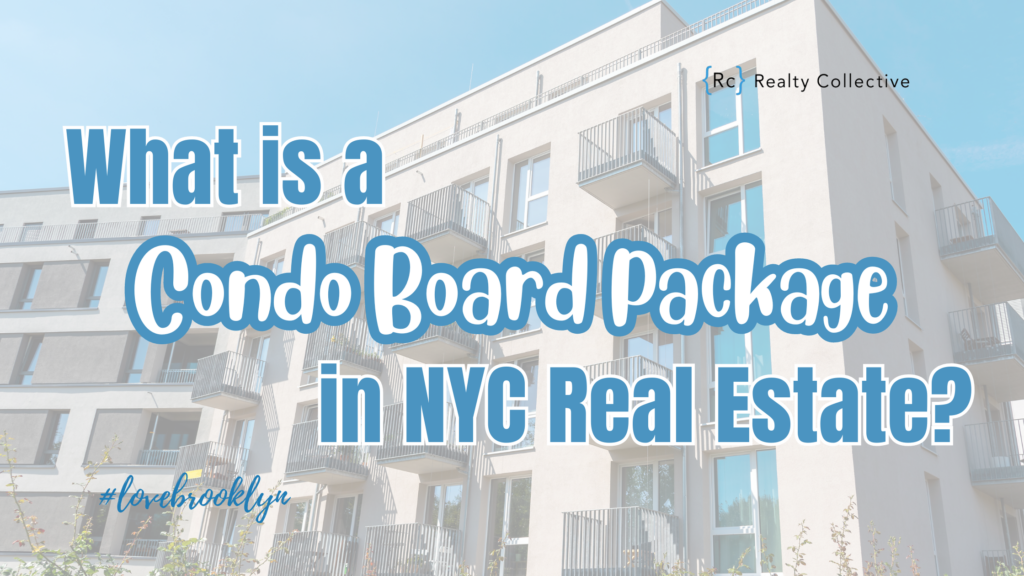What Is a Condo Board Package in NYC Real Estate?
Nov 12, 2023

It’s a common misconception among buyers in NYC that a board package is only required for
a co-op apartment. While a condo does not have the same broad discretion as a co-op to
reject buyers, most condos still require buyers to complete and submit a board package.
The condo board package in NYC is primarily an administrative exercise whereby you fill-in a
basic three to five page application, sign a few pages and assemble various documents, such
as your mortgage commitment letter. While a condo cannot reject you unless it agrees to buy
the apartment, a condo board does have grounds to delay your closing indefinitely if you
refuse to complete the purchase application.
The application itself usually requests basic information about the proposed transaction (sale
price, down payment, etc.) as well as the full contact details of the buyer, seller, brokers and
real estate lawyers working on the deal. It may also ask for your residence history, employment
history, potential occupants of the apartment, emergency contact information as well as the
name of your references (if the application asks for reference letters).
The signature pages in a condo board application may consist of the following:
● Window Guard Disclosure
● Lead Paint Disclosure
● Pet/Wildlife Rider
● Bed Bug Disclosure
● Occupancy Rider
● Notification of Legal Mailing Address
● Emergency Contact Information Form
● Signed Financial Statement
● Credit Check Authorization
● House Rules Acknowledgment
● Condo Power of Attorney
● Fire Safety Acknowledgment Rider
Here are some examples of typical documentation you may be asked to submit as part of the
condo board application in NYC:
● Signed Purchase Contract
● Loan Application
● Mortgage Commitment Letter
● Tax Returns – Past 2 or 3 Years
● Bank Statements – 2 to 6 Months
● Landlord Reference Letter
● Income Verification Letter
● REBNY Financial Statement
● Personal Reference Letters – 1 to 3
● Professional Reference Letters – 1 to 3
Condo boards have broad leeway in their board package documentation requirements. If your
condo building’s documentation requirements are particularly onerous, there’s not much you
can do about it.
Smaller buildings (especially self-managed condos) usually have a very small board application
with little or no documentation requirements outside of asking to see the contract of sale. This
isn’t always the case however, as small buildings often have incredibly domineering condo
boards with owners who think they live in a co-op.












